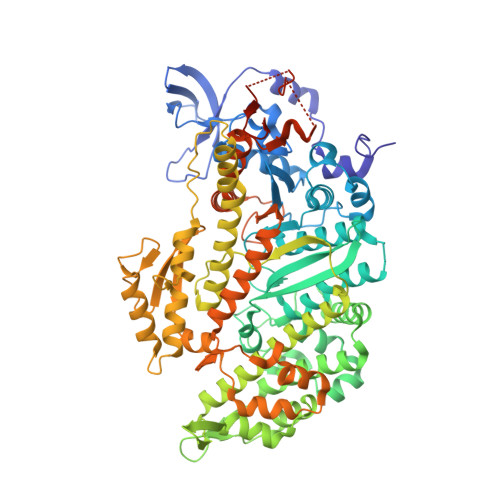How actin initiates the motor activity of Myosin.
Llinas, P., Isabet, T., Song, L., Ropars, V., Zong, B., Benisty, H., Sirigu, S., Morris, C., Kikuti, C., Safer, D., Sweeney, H.L., Houdusse, A.(2015) Dev Cell 33: 401-412
- PubMed: 25936506
- DOI: https://doi.org/10.1016/j.devcel.2015.03.025
- Primary Citation of Related Structures:
4PFO, 4PFP, 4PJJ, 4PJK, 4PJL, 4PJM, 4PJN, 4PK4 - PubMed Abstract:
Fundamental to cellular processes are directional movements driven by molecular motors. A common theme for these and other molecular machines driven by ATP is that controlled release of hydrolysis products is essential for using the chemical energy efficiently. Mechanochemical transduction by myosin motors on actin is coupled to unknown structural changes that result in the sequential release of inorganic phosphate (Pi) and MgADP. We present here a myosin structure possessing an actin-binding interface and a tunnel (back door) that creates an escape route for Pi with a minimal rotation of the myosin lever arm that drives movements. We propose that this state represents the beginning of the powerstroke on actin and that Pi translocation from the nucleotide pocket triggered by actin binding initiates myosin force generation. This elucidates how actin initiates force generation and movement and may represent a strategy common to many molecular machines.
- Structural Motility, Institut Curie, Centre de Recherche, Paris 75248, France; CNRS, UMR144, 26 rue d'Ulm, Cedex 05, Paris 75248, France.
Organizational Affiliation:




















